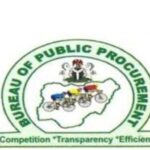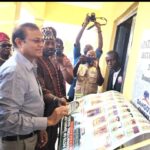LCCI urges govt. on incentivised investments to revive agric, manufacturing sectors
By Rukayat Moisemhe The Lagos Chamber of Commerce and Industry (LCCI) has urged government to incentivise investments in the agriculture, agro-processing and manufacturing sectors to reverse the continued weak growths in the sectors. Mr Gabriel Idahosa, President, LCCI, gave the advice at the Chamber’s Quarterly State of the Economy newsContinue Reading





















